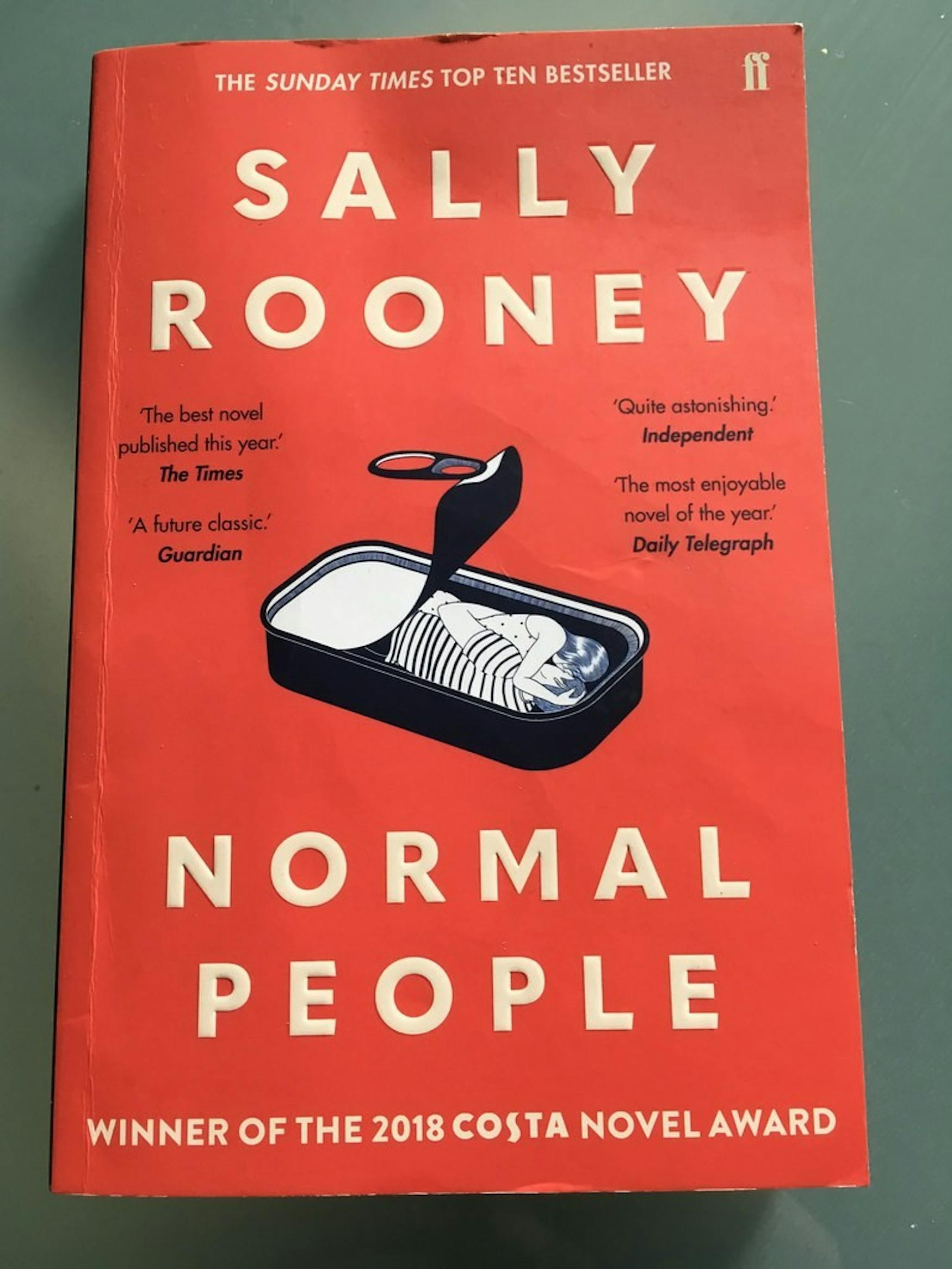‘Conversations with Friends:’ a slow show for the socially anxious
Here we are again — another one of Irish author Sally Rooney’s restrained, emotionally-knotty novels has been adapted into a miniseries. This time it’s her debut book, “Conversations with Friends,” published in 2017. The 12-episode adaptation, which dropped on Hulu on May 15, stars Alison Oliver and Joe Alwyn as leading characters Frances and Nick, respectively.
After the critical acclaim and fan obsession around Hulu’s adaptation of “Normal People” in 2020, there were a lot of high expectations leading up to the release of the next Rooney-verse TV series. In the week since its release, however, “Conversations with Friends” has received mixed reviews from critics and fans alike. “Variety” takes issue with the lack of chemistry between Oliver and Alwyn, while The Guardian’s review points out that “Conversation”’s slowness often devolves into tedium, and that the series ultimately falls short of its goal to be emotionally evocative and instead feels flat and aimless.
Having just watched “Conversations with Friends,” I can’t help but agree with a lot of the critiques of this series. There were plenty of moments that I found the show’s quietness and minimal plot to be, quite simply, boring. And, from the overuse of narration to the often anti-climatic dialogue between characters, the series was very repetitive at times. I swear Frances was asked, “Are you okay, Frances?” at least 20 times across all 12 episodes.
At this point, I want to give a major disclaimer: I have never read any of Rooney’s books. My opinions are based solely on the television adaptation, so there will be no “But it was different in the books!” talk in this article, as valid as that critique may be.
Although I agree with some of the harsh reviews about this show, I still find myself drawn to the seemingly “boring” characters in “Conversations with Friends,” despite the series’ many imperfections and missteps. The quiet, even awkward, romance that buds between Frances and Nick rarely feels contrived, or archetypical, which is a difficult thing to pull off in a show centered around an extra-marital affair. Directors Lenny Abrahamson and Leanne Welham also depict Frances’s introversion and self-destructive emotional restraint in a way that invites the audience to empathize with her but never to excuse her of her hurtful and thoughtless actions.
The other main characters, Bobbi — played magnificently by Sasha Lane — who is the best friend and ex-lover of Frances, and Melissa — played by the magnetic Jemima Kirke — who is Nick’s wife, are often sidelined in the wake of Frances’s self-absorption and repressed turmoil. I wish these characters’ emotional interiority and depth had been given more time and space, but unfortunately they often must play the part of supporting character. However, both Bobbi’s and Melissa’s extraversion and maturity provide a useful foil to Frances’s — and at times, Nick’s — narcissistic choices and emotional repression.
One moment that solidified my respect and admiration for Melissa as a character was in the final episode, when Frances calls Melissa to confront her about a perceived act of sabotage (I’m keeping it vague so as to not spoil anything). Melissa must handle the flood of accusations, insults, and thoughtlessness coming from Frances — who also happens to be the woman who slept with Melissa’s husband. In a moment of heart-wrenching self-control and kindness, Melissa listens to Frances break down over the phone, takes a deep breath, and steels herself, asking her genuinely, “Are you okay, Frances?” It’s a scene that allows the audience to step out of Frances’s all-consuming perspective for a minute, and see the pain and poise of the people around her that make Frances’s problematic choices even harder to watch, let alone justify.
Frances’s inner turmoil and outward aloofness is brought to life effectively by Oliver, a newcomer to television and fresh out of the Lir Academy in Dublin. She handles the complexity, self-obsession, and anguish of Frances extremely well, and I enjoyed her performance throughout the series. Oliver’s Frances seems to me the perfect embodiment of the bad introvert — the quiet, maybe even aloof, person whose tendency to reflect inward gets twisted into self-obsession. And that’s one of the things the series does well: it honestly shows the messy, and sometimes cruel, side of interiority and anxiety. For people who live too much in their own head and struggle to communicate, Frances’s many struggles in “Conversations with Friends” may hit close to home.
Ultimately, for all its slowness and frustratingly reticent characters, “Conversations with Friends” is worth watching, though I won’t be returning to rewatch it anytime soon.




Please note All comments are eligible for publication in The Justice.